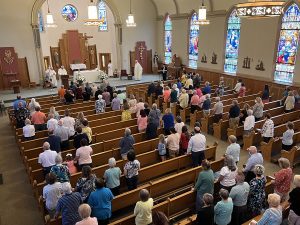
WILKES-BARRE – As she walked into the final Mass at the Church of Saint Dominic, wonderful memories came flooding back to Cheryl Woloski.
“Since I was a little girl, I came to Saint Dominic’s Church. We lived in Parsons and walked to church. I received First Holy Communion here, Confirmation and I actually got married here,” she said.
While she called the final Mass for the 140-year-old church a “bittersweet moment,” Woloski acknowledged decreasing Mass attendance and sacramental participation at the worship site, which precipitated its closing. At the time of its closing, the church only had one Mass each week, which averaged between 30-50 people.
“We definitely understand why it has to be done,” she said.
On June 11, 2022, more than 100 people filled the pews for the church’s final Mass, which was celebrated by Rev. John Lambert, M.S.W., pastor, Saints Peter & Paul Parish, Plains. For the last several years, the Church of Saint Dominic has served as a secondary worship site of the Plains parish. All of the faithful who attend the Church of Saint Dominic are already parishioners of Saints Peter & Paul Parish.
“We will miss it but we saw it coming,” John Magda explained.
After being married in the Church of Saint Dominic 57 years ago, John and Maureen Magda called Saint Dominic’s a beautiful, quaint building.
“I enjoyed going to this church all my life. It was like a community,” Maureen added.
While the church building is closing for liturgical worship, Saints Peter & Paul Parish will retain the building to expand its outreach to those in need in the community. The church building will become the new home of the parish’s food pantry and Treasures clothing closet ministry.
“The food pantry and Treasures are a huge help for people who benefit from it. I hope it works out,” parishioner Betty Ann Parri of Plains said.
“If it is going to make things better for people around here to supply them with food and clothing, then that is what we need to do,” parishioner Joann Brage of Plains added. “Nobody likes change but our lives change and we have to accept change and carry on.”
As he welcomed the faithful to the final Mass, held on the Solemnity of the Most Holy Trinity, Father Lambert said, “Let us pray that the grace which comes from God the Father, God the Son, and God the Holy Spirit, might guide us as we continue our journey of faith.”
During his homily, Deacon Don Crane reminded those in attendance that Jesus never abandons us. He told a story from his days in the Army reserves in the early 1970s when his unit celebrated Mass on the hood of an Army tank.
“It doesn’t matter where you worship God, in a fancy building or your own home, in an elaborate basilica or hospital chapel, a prison cell, a combat field or on the open sea, what matters is that you put your faith in our God, one Father, Son, and Holy Spirit, the Most Holy Trinity,” he said.
At the conclusion of the final Mass, parishioner Hilda Kalinowski, 83, was given the honor of locking the church door for the final time as a worship space.
“It’s going to be okay because we’re going up to a bigger church. The people are very nice up there. They will welcome us,” she said after her duty was complete.
Appropriately, the liturgical services ended with a Eucharistic Procession that led the faithful to their new home of Saints Peter & Paul Parish.

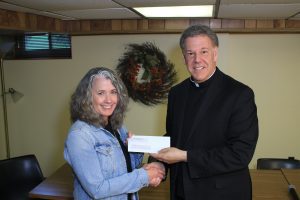


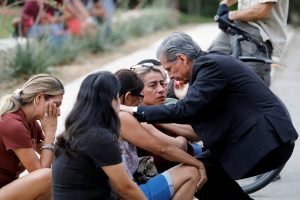
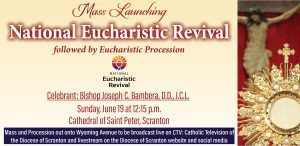
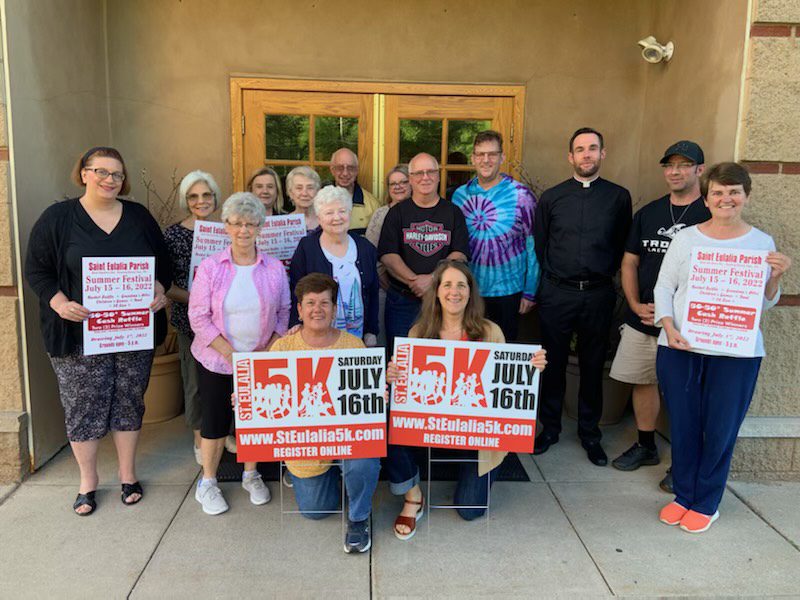
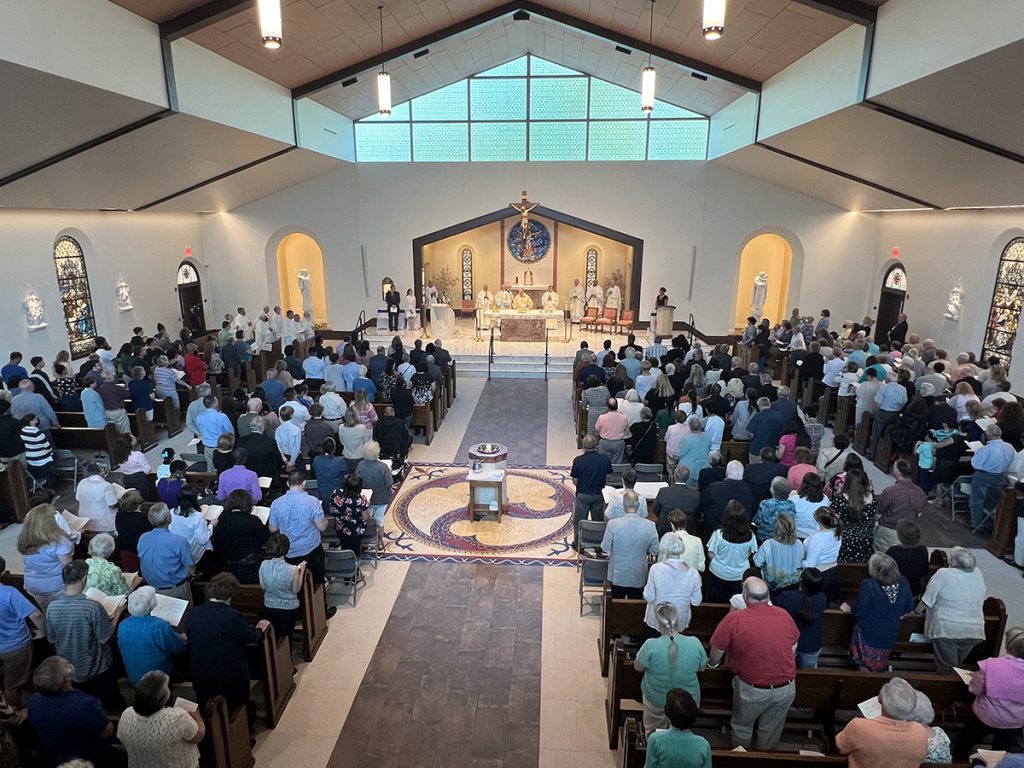
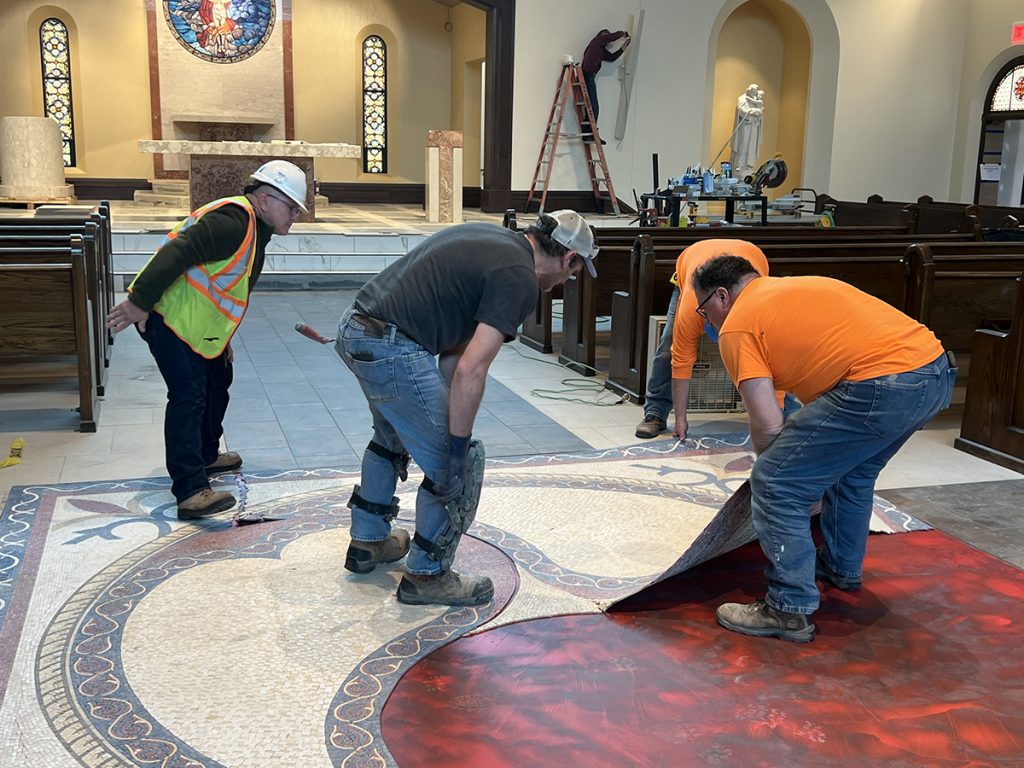 Using the Scriptures, including the First Reading from the Book of Nehemiah, which is required for a church dedication Mass, Bishop Bambera spoke to the reality of the moment.
Using the Scriptures, including the First Reading from the Book of Nehemiah, which is required for a church dedication Mass, Bishop Bambera spoke to the reality of the moment.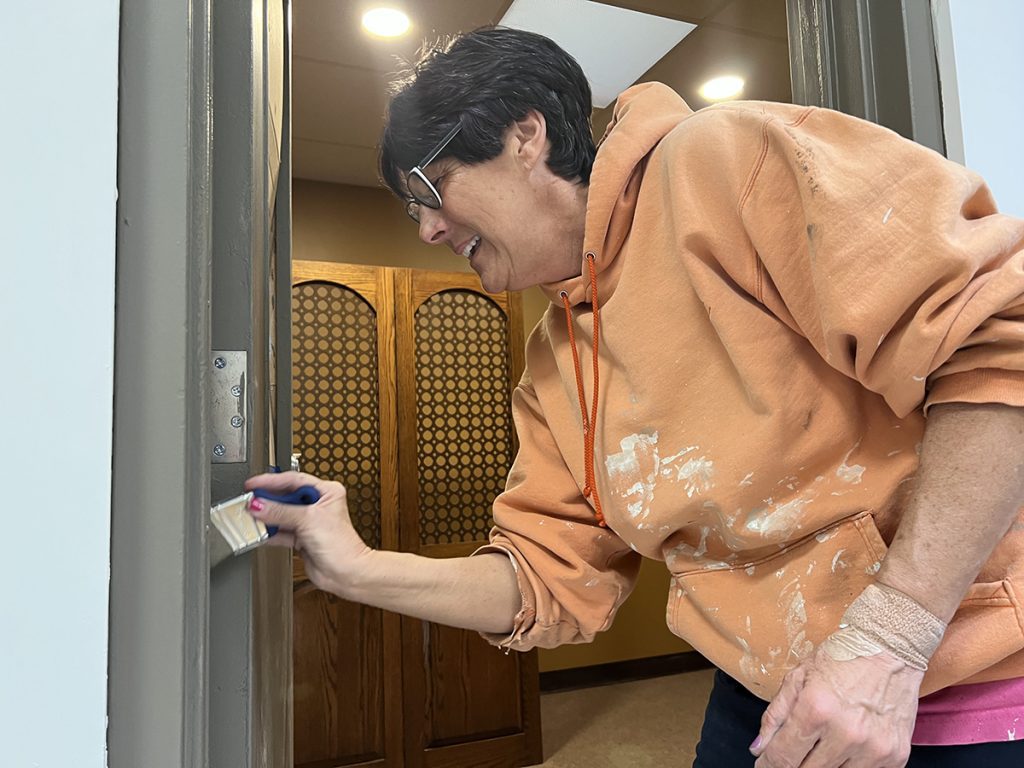 dedication of their new building.
dedication of their new building.
